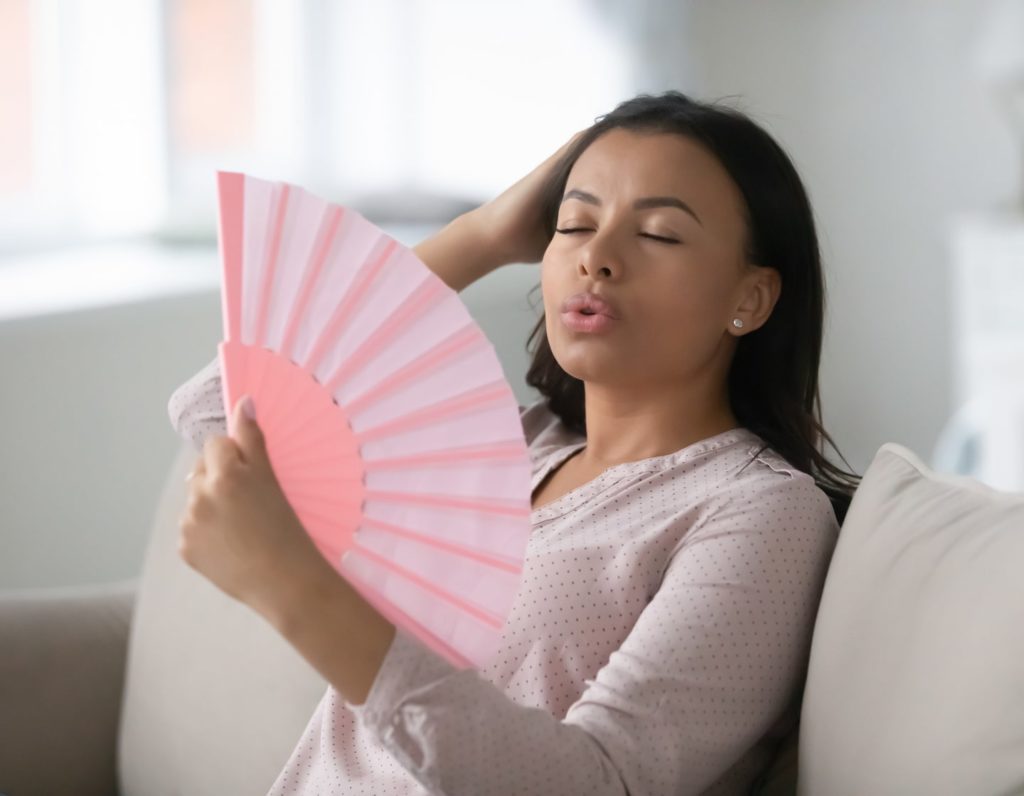
Hot flashes, no sex drive, insomnia… could you be going through menopause? Osler Health International answers FAQs on menopause, and how you can manage your symptoms
Let’s normalise discussions on menopause! Us ladies will all go through it at some point and there’s no shame in it. However, its symptoms can be frustrating. Osler Health International, a new international GP doctor’s clinic in Singapore offering primary healthcare services for the whole family, sheds more light on the subject.
 Dr June Tan Sheren is Osler Health International’s go-to doctor for knowledge and sound advice on peri-menopause and menopause. She has been caring for the international community in Singapore for 12 years and has built a reputation for compassionate care in this area. Here she answers the most frequently asked questions on menopause!
Dr June Tan Sheren is Osler Health International’s go-to doctor for knowledge and sound advice on peri-menopause and menopause. She has been caring for the international community in Singapore for 12 years and has built a reputation for compassionate care in this area. Here she answers the most frequently asked questions on menopause!
What is menopause?
Menopause is a natural, normal event. It is the final menstrual period and usually confirmed when a woman has not had a period for 12 consecutive months. Menopause occurs when your ovaries no longer produce eggs, resulting in lower levels of oestrogen and other hormones. Low levels of oestrogen can affect different systems in the body, such as your bones, heart, brain, skin, genital area and urinary system.
When does menopause start?
It occurs on average at age 51 years of age, but can occur anytime between 45 and 55. The term ‘premenopause’ or ‘perimenopause’ refers to the phase of life that precedes menopause.
If you are over the age of 45 and have the usual symptoms of menopause, you do not usually need any tests to diagnose menopause. If you are younger than 45 and have symptoms, it is advisable to see your doctor for a check. Early menopause may run in the family but sometimes an underlying medical condition may be the cause.

What are the symptoms of menopause?
The symptoms of menopause may include changed menstrual periods, hot flashes, night sweats, difficulty sleeping, memory problems, mood disturbances, vaginal dryness, and weight gain. Symptoms can begin during the perimenopausal years. Each woman’s experience is different. Not all these changes are hormone-related, and most are expected to resolve after menopause.
What is common with patients in Singapore?
Most patients report changes in menstrual pattern – they might find cycles getting shorter or longer, or periods getting lighter or heavier. Menstrual changes are very common but it’s important to be aware that they are not always due to menopause. I ask my patients many questions about the changes they’ve observed and often will perform a gynaecological examination. If there are any red flags, it is necessary to exclude other causes of menstrual changes. Uterine fibroids for example, are common in this age group and can cause excessively heavy menses.
Hot flashes and night sweats are also frequently reported. Many women ask if they are feeling hot just because of our weather here in Singapore, while others report drenching night sweats despite turning the air-conditioning to the max. Many do not realize that the glass of wine at dinner is likely to worsen hot flashes at night. The severity of symptoms is variable and tends to fluctuate as well. Sleep disturbances can result from menopausal hot flashes but are also frequently unrelated.
Insomnia, memory disturbances, mood changes and reduced libido may occur separately or co-exist. Again, these symptoms may or may not be entirely due to menopause; oftentimes there are several factors coming together. Vaginal dryness is very common and normal; however any persistent irritation, painful intercourse, or frequent urinary symptoms should be evaluated by your doctor.
Weight gain, or difficulty losing weight, is another frequent complaint from women in or nearing menopause. The slightly uncomfortable truth is that this mid-life weight gain is mostly related to ageing and lifestyle rather than menopause. Menopause though may contribute to changes in body composition and where fat is stored, with a decrease in lean body mass. If there is abnormal weight gain, it is useful to do a thyroid function test to exclude underlying thyroid abnormalities.
What kind of treatments exist for menopause?
It is easy to be confused by all the information we get from the internet and what we hear from others. One of the most common questions I get is whether menopause needs to be treated or not if it is a natural process. My answer is indeed it is normal and natural and no treatment is needed if a woman going through menopause does not have troubling symptoms. However if there are unusual, troublesome or debilitating symptoms, such as those that affect your well-being, it is important to see your doctor for a proper evaluation. There are effective treatments for some symptoms ranging from herbal, natural remedies to hormone replacement therapy. Vaginal dryness can be effectively managed by vaginal moisturisers or estrogen creams and pessaries, known as local estrogen treatment. The decision on which treatment is best for you should be made in consultation with your doctor, as some treatments may not be suitable depending on a woman’s medical and family history. Treatment that is individualised ensures the most effective and safest outcome.

Are there any lifestyle changes we can make to manage menopause symptoms?
It has been shown in major studies that the most important strategy in managing menopause is adopting a healthy lifestyle and diet. This not only helps to alleviate symptoms, it also achieves good physical and mental health, cardiovascular health and bone health. Good nutrition should include adequate calcium, iron and B12 in the diet. Frequent exercise reduces cancer and cardiovascular risks and helps prevent osteoporosis.
Reducing alcohol intake not only reduces symptoms, it also lowers cancer and osteoporosis risks. Smoking increases the risk of every major health problem. Achieving good quality sleep can be challenging, and an important first step is ensuring a good sleep routine. Mental wellbeing is an essential aspect to be aware of and continually work on. This is an excellent time for women to review their health records and ask their doctors if they are up to date with routine health screenings like cervical smears, mammograms, blood pressure, cholesterol, diabetes checks, and osteoporosis screening. Keeping well and staying well, both physically and mentally, goes a long way in successfully managing menopause.
Think you may be going through menopause or have unexplained symptoms? Do reach out and get an analysis of your personal situation with Osler Health International and their doctors can provide a menopausal screening at any time. They aim to offer you the most recent no-nonsense information, as well as trusted medical care – all with compassion. As a smaller clinic, they offer a personalised service, where the team of trusted and experienced doctors work together, to give patients the best care. If you have an unanswered question – reach out to them for more info!
Osler Health International:
Business Operating Hours: 8.30am – 5.30pm Mon – Fri, 8.30am – 1pm Saturday
– Raffles Hotel Arcade, 328 North Bridge Road, #02-34 Raffles Hotel Arcade, Singapore 188719, Tel: (+65) 6332 2727, [email protected]
– Star Vista, 1 Vista Exchange Green, #B1-27, Singapore 138617, Tel: (+65) 6339 2727, [email protected]
www.osler-health.com






 View All
View All




 View All
View All









 View All
View All







